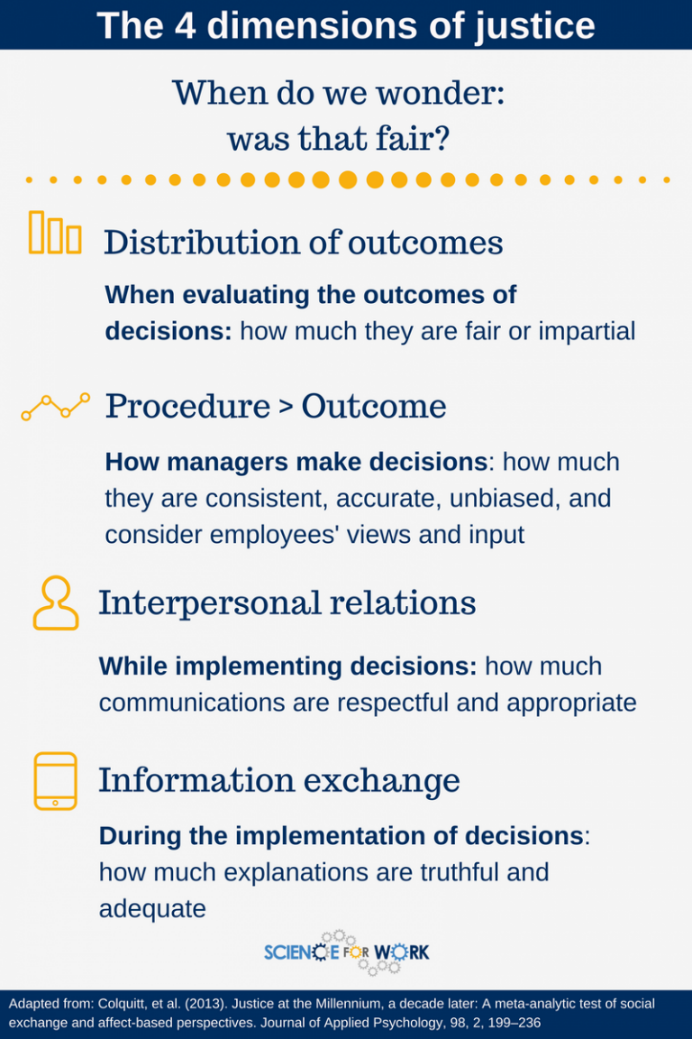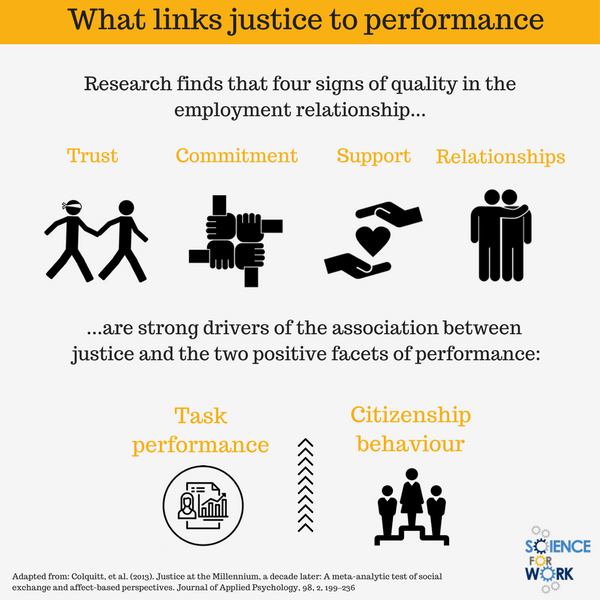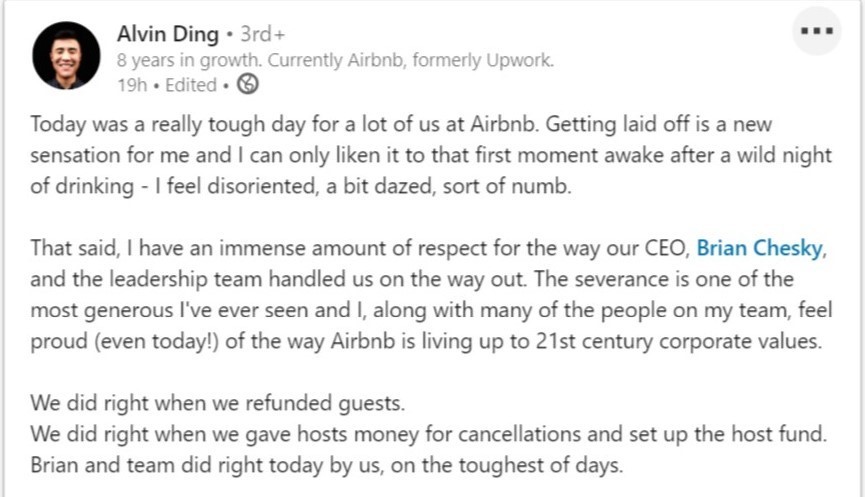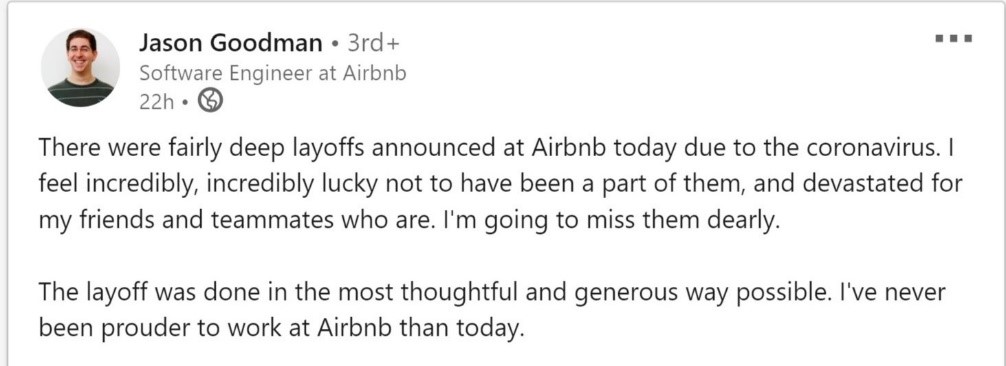Brian Chesky of Airbnb – Organizational Justice in Action
The economic impact of Covid-19 has been felt around the world, and the hospitality industry has been hit especially hard. As a result, Brian Chesky, CEO of Airbnb, announced that they would, unfortunately, be laying off 1900 employees, or roughly 25% of their workforce. Being laid off is awful and my heart goes out to all of those affected.
But while many companies have been forced to make layoffs, Airbnb’s handling of theirs is unique. For those that haven’t seen it, please take a minute to read the note that Brian Chesky sent to the company: https://news.airbnb.com/a-message-from-co-founder-and-ceo-brian-chesky/.
What is immediately apparent is the personal pain that this decision has caused Brian, and the concern that he has for the people it affects. With care and compassion, he explains why the decision to reduce their workforce was necessary, how it will impact the company moving forward, what it means for the employees, both those being laid off and those staying on, and what they can all expect to happen in the coming days.
Brian showed great empathy in recognizing the emotions this announcement would spur, and, beyond just acknowledging them, he took real steps to help lessen the blow.
-
1. To lessen the financial burden of unemployment, Airbnb is offering extremely generous severance packages, dropping the one-year cliff on equity, and covering up to 12 additional months of healthcare.
-
2. To help ease the pain of losing close social connections with co-workers, the company set the final working date as May 11th in order to give those leaving time to say their goodbyes.
-
3. To help with the stress of finding new job opportunities Airbnb will be offering a number of resources including an online talent directory, a job placement team, four months of career services, and an alumni support program. They also offered to let the leaving employees keep their company laptops.
Better business minds than me can debate whether this decision was prudent from a strategic point of view, and time will tell what the fallout will be. But I believe that the reputational and psychological benefits of the handling of this process and its communication will ultimately pay off for the company in the long run. This can be better explained through the lens of a concept Organizational Psychologists call “Organizational Justice”.
Achieving Organizational Justice
Organizational Justice is the sense of fairness that a company is perceived to act with. A major layoff is an excellent example of a time when justice and fairness are put under the microscope, and it is thought by researchers to be evaluated in four ways:
In my opinion, Airbnb’s workforce reduction checks all of the fairness boxes in the following ways:
Distribution of Outcomes
Brian could just as easily have said that the layoffs are an unfortunate result of the difficult financial situation, but he went further to explain how the decision to reduce the workforce was arrived at and why it would affect specific parts of the organization.
Procedure
In his statement, Brian explained the principles that have guided how they are approaching the layoff. In particular, he spoke to the need to align the workforce with a business strategy that will sustain the company through this period and beyond.
Interpersonal Relations
While the message alone is a sufficient demonstration of care, respect, and decency, Airbnb is also committed to having personal, 1:1 conversations with as many of those affected as possible and to communicating future decisions with clarity and transparency.
Information Exchange
While I’m not privy to how this process will be implemented on the ground, I personally felt that the facts were presented clearly and openly such that the employees likely have enough of an understanding of the circumstances of the decision to hopefully achieve a sense of acceptance and closure.
The Outcomes of Organizational Justice
It may feel somewhat intuitive that when employees feel they are treated fairly there will be positive outcomes, and indeed the research backs this up.
And the impact of the consideration and generosity shown to both the 1900 leaving employees and the 5600 who are staying can be seen in the words they shared on social media.
To any leaders who will have to make and communicate difficult decisions in the coming weeks and months, I hope that these lessons from Airbnb will help guide you.
I’ll leave you with Brian’s final message to the employees leaving Airbnb:
To those leaving Airbnb,
“I am truly sorry. Please know this is not your fault. The world will never stop seeking the qualities and talents that you brought to Airbnb…that helped make Airbnb. I want to thank you, from the bottom of my heart, for sharing them with us.”
Brian















